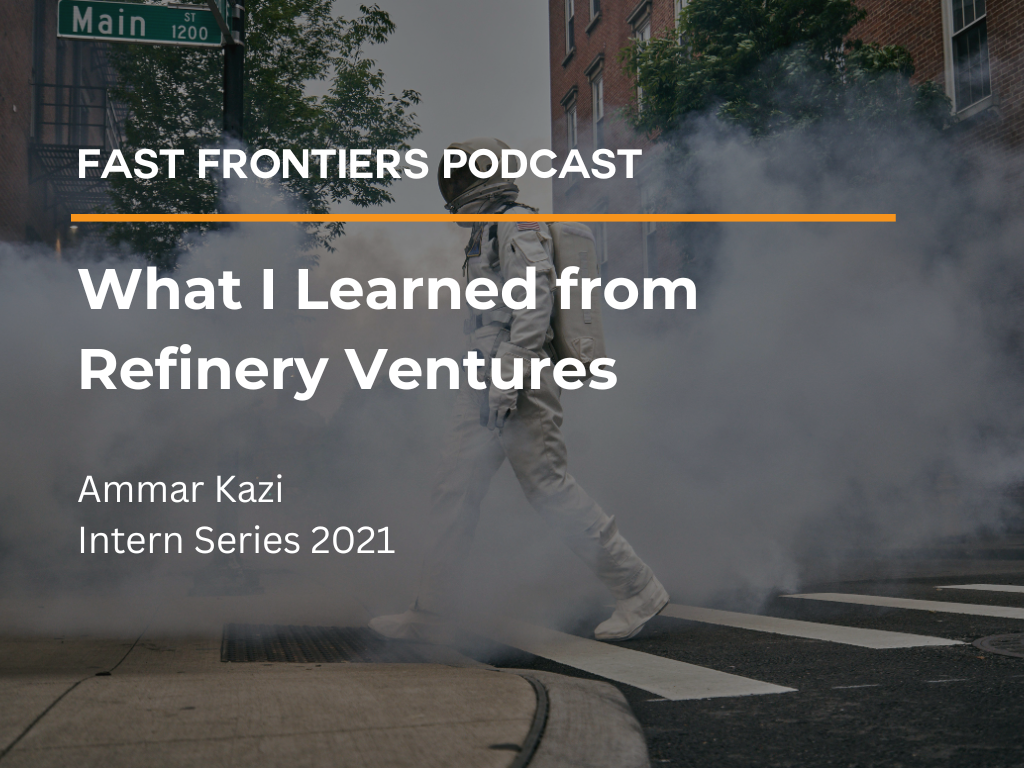Hi I’m Ammar, this summer I interned at Refinery Ventures. In this blog I hope to shed light on what I’ve learned from observing the minds of venture capitalists and pass helpful information along to all those interested in VC, whether they are looking to work in VC or raise their next round of funding
Aspirin or Vitamin
A question that may arise when considering a new company is “Is this the aspirin or the vitamin?”
Vitamins are nice to have. Aspirins are a need to have.
Vitamins are good for you, but many people don’t take them. People forget their effects because they aren’t noticed immediately. Aspirin, however, addresses a problem that is evident immediately. An “Aspirin Company” solves an unmet customer need, whereas a “Vitamin Company” improves an existing solution.
Question Everything
Pitching a startup means persuading investors that there is a market opportunity. Investors use questions to gain a deeper understanding of a company and get to the heart of the case. Questions should have a goal and the information should help inform your decision-making.
The concept of “Question Everything” is also important when constructing a thesis about the world. Investors benefit from knowing why people do what they do and where society can improve. From my summer at Refinery, I’ve learned what information is important to guide decision-making and how to make conclusions.
Blurred Lines
Prior to my internship I held the perception that team, market, and execution were the overwhelmingly dominant components of an early-stage investment decision. As I’ve come to realize, there are a lot more factors involved. To name a few: co-investors, deal terms, industry hypothesis, and trends.
The art of funding good companies goes beyond picking them. I’ve noticed that valuation, size preference, and tech focus can all be flexible to a company with high growth potential. And that high growth potential is only half reliant on the metrics and equally about execution.
Test Revenue
Going from 0-1 requires different skills than going from 1-10. Refinery’s mission is to help companies scale.
In the early stages, it’s important for startups to maximize learning rather than growth. In the test revenue phase, you are learning; in the scale revenue phase, you are growing. During test revenue you are answering questions about friction points in your process and how to demonstrate ROI.
Companies want to control their burn rate to give time to figure out answers to all your questions. Getting to the bottom of key questions is key to fast growth. Furthermore, it is crucial to understand the dynamics of customer relationships. The sooner a company can figure out how not to waste time with people that will never be a customer the better. This can only be done by experimenting a lot.
Notes on Pitches
If it takes more than 5 minutes to describe your business you’ve probably lost someone. In all likelihood, 5 minutes will not be enough to provide a comprehensive account of your business.
The purpose isn’t to dumb down what you’re doing, just to have a foundation to start. Having a clear description of the business also includes understanding key drivers. There is a problem when people try to sell without understanding what the key levers are in the business, and this causes businesses to flail out.
Whether you’re aiming to work in VC or just looking to raise I hope these tips helps you. Thanks to Refinery Ventures for the great summer. For more insights on raising, check out my last article about data rooms.



